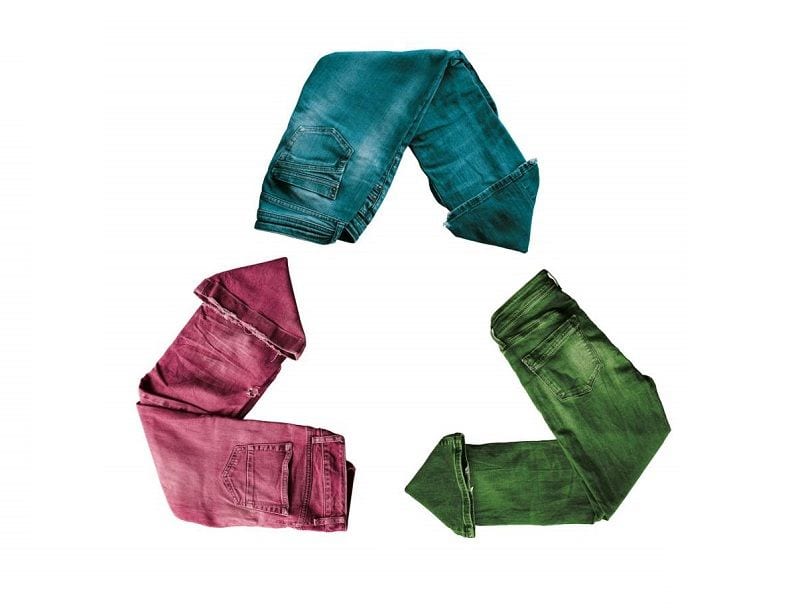Cape Town Sustainable Fashion: Ethical Apparel for a Much Better Planet
Cape Town Sustainable Fashion: Ethical Apparel for a Much Better Planet
Blog Article
Remain Ahead of the Curve by Checking Out Innovative Style Fads
In an industry as dynamic as style, staying ahead includes greater than simply following current fads-- it demands an exploration of innovation. Smart fabrics, for instance, are changing garments right into useful masterpieces, while 3D printing is revolutionizing layout processes with its customizable, waste-reducing capabilities. As sustainability becomes a cornerstone, technologies like green materials and round fashion methods are reshaping environmental obligation - Cape Town Sustainable Fashion. Moreover, the convergence of modern technology and style advertises a brand-new age of consumer interaction. How, after that, can these arising trends redefine the future of fashion, and what effects do they hold for brand names looking for to grow in this progressing landscape?

Accepting Smart Textiles
In recent times, the style market has actually witnessed a transformative change with the assimilation of smart fabrics, a cutting-edge advancement that mixes innovation with textile. This development stands for not just a combination of appearances and performance but likewise a significant leap towards sustainability and personalization in fashion. Smart fabrics, likewise understood as e-textiles, installed sophisticated electronics such as sensors and conductive threads within the textile, allowing garments to connect with the atmosphere or the user.
These fabrics are created to keep track of physical criteria, such as heart rate or body temperature, offering real-time wellness analytics. Past health and wellness applications, smart textiles are also being used for adaptive garments, which can transform shade or pattern in reaction to ecological stimuli, hence offering a vibrant fashion experience.
Additionally, the advancement of energy-harvesting textiles that create power from movement or sunlight is leading the way for self-dependent wearable technology. This development is appealing to eco mindful consumers and developers intending to decrease the ecological impact of style. As study and advancement in this field advancement, smart fabrics are anticipated to end up being increasingly common, improving the landscape of modern style with their multifunctional abilities.
The Increase of 3D Printing
Changing the manufacturing landscape, 3D printing has actually emerged as a game-changer in the fashion business. This sophisticated modern technology has actually allowed designers to push the limits of creativity, producing elaborate and customized garments that were formerly unimaginable. By leveraging digital layout and additive manufacturing, 3D printing assists in the development of complicated geometries and patterns, permitting designers to try out new structures and frameworks.
A notable benefit of 3D printing in vogue is its capacity to create on-demand, minimizing waste and reducing stock demands. This performance not only optimizes manufacturing processes yet additionally allows for fast prototyping, making it possible for designers to bring their visions to life in a much shorter timeframe. In addition, 3D printing supports modification to a level unparalleled by traditional techniques, providing distinct designs and customized fits tailored to private consumer choices.
The rise of 3D printing has actually likewise democratized style, making it obtainable to arising developers who can currently make premium items without considerable monetary investment in typical production facilities. As technology remains to advancement, the apparel industry is poised to harness the full potential of 3D printing, exploring brand-new materials and methods that will most certainly redefine just how fashion is conceived and produced.
Lasting Style Advancements
As the fashion business faces the pushing requirement for environmental responsibility, lasting style developments have emerged at the forefront of transformative adjustment. The expanding recognition of environmental impact has actually sustained a change in the direction of even more eco-conscious practices and products. Developers and brands are now prioritizing sustainability, including techniques that lessen waste and minimize carbon impacts.
One significant development is the increase of circular style, which emphasizes recycling and upcycling to expand the lifecycle of garments. This strategy not only reduces waste yet also encourages customers to adopt a much more conscious approach to clothes consumption. Additionally, the use of lasting materials, such as natural cotton, hemp, and recycled polyester, has actually gotten grip. These materials require less water and power during manufacturing, substantially lessening ecological this post impact.
Another development depends on the adoption of innovative dyeing strategies that utilize waterless procedures or natural dyes, thus lowering the large quantities of water and chemicals commonly used in textile dyeing. In addition, advancements in biotechnology have caused the production of lab-grown leather and fabrics, providing cruelty-free and eco pleasant choices to conventional materials. Through these pioneering efforts, the fashion sector is making significant strides in the direction of a much more lasting future.

Tech-Integrated Apparel
Tech-integrated garments stands for an innovative fusion of style and innovation, reshaping just how individuals interact with their garments. This innovative domain is marked by the addition of smart fabrics and embedded electronic components, enhancing both functionality and aesthetic appeal. From physical fitness trackers embedded in sports apparel to warmed coats managed via smart device applications, tech-integrated apparel provides consumers extraordinary benefit and versatility.
Introducing brand names are driving this trend, focusing on producing garments that react to ecological stimuli or customer commands. For circumstances, some garments can alter shade or pattern in feedback to temperature changes, while others include biometric sensing units to keep an eye on health metrics like heart rate or stress degrees. The smooth integration of modern technology right into fabrics likewise includes ecological sustainability, with efforts to develop self-cleaning textiles or garments that adapt to weather, therefore lessening the requirement for numerous layers.
In addition, the development of wearable modern technology is not just restricted to clothing yet includes devices like watches and glasses, further expanding the range of tech-integrated fashion. As the sector proceeds to introduce, the possibility for personalization and personalization in garments expands, offering customers one-of-a-kind, tech-enhanced style experiences that satisfy their individual demands and preferences.
Future of Virtual Style
In current years, the future of virtual fashion directory has become a transformative pressure within the industry, leveraging innovations in digital modern technology to redefine how try here fashion is developed, experienced, and eaten. By integrating enhanced fact (AR), virtual truth (VR), and 3D style devices, designers can now craft interactive and immersive experiences that transcend conventional fashion borders. Virtual fashion enables for the development of garments that exist solely in electronic environments, using limitless possibilities for advancement without the constraints of physical production.
This digital change not only provides chances for creative expression however likewise addresses sustainability problems fundamental in traditional style practices. Cape Town Sustainable Fashion. By eliminating the requirement for physical sources, online style minimizes waste and minimizes carbon footprints. Additionally, the rise of digital fashion aligns with the raising customer need for personalized and one-of-a-kind experiences, as virtual garments can be tailored and customized to individual preferences with ease

Verdict
The fashion industry's future lies in the assimilation of ingenious modern technologies and sustainable practices. Digital style is poised to redefine customer interactions.
In recent years, the fashion market has witnessed a transformative shift with the assimilation of smart textiles, a cutting-edge technology that mixes technology with textile.As the style industry grapples with the pressing demand for ecological responsibility, lasting fashion advancements have actually arised at the leading edge of transformative change.In current years, the future of digital fashion has emerged as a transformative pressure within the industry, leveraging developments in digital technology to redefine how style is created, experienced, and consumed. The increase of digital style straightens with the enhancing consumer demand for one-of-a-kind and personalized experiences, as digital garments can be tailored and customized to specific preferences with ease.
The fashion sector's future lies in the combination of lasting methods and ingenious modern technologies.
Report this page